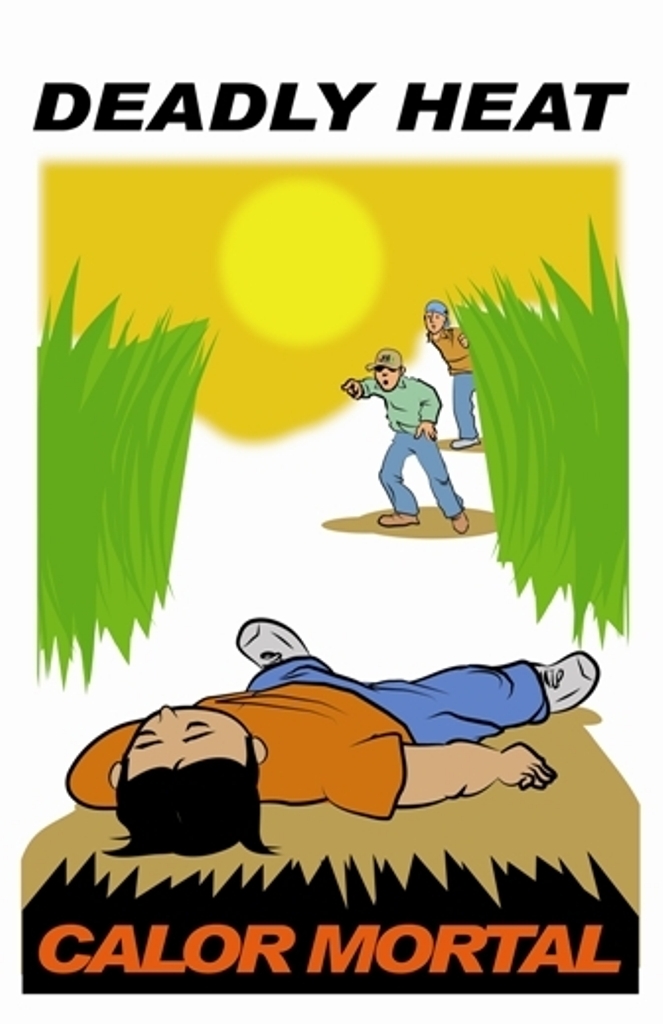
(Photo Source: Wake Forest School of Medicine)
Deadly Heat is a heat-stress safety education program for migrant and seasonal farmworkers. The Center for Worker Health in the Wake Forest School of Medicine developed resource materials that an instructor can use to present the program, which consists of an hour-long presentation, to youth and adults. The presentation begins with a story about a heat-stress incident in an agricultural setting, followed by information on preventing heat stress, the health effects of heat stress, treatment, and emergency response.
The resource materials are divided into four PDF files:
-
Curriculum outline
-
Flip chart pages
-
Cabbage game
-
Brochure
Curriculum Outline
Click HERE to access the Deadly Heat curriculum outline, which outlines the one-hour presentation. The curriculum outline provides objectives, materials, and an agenda of activities. The presentation includes introductions, content instruction for using the flip chart, an explanation of the cabbage game, and a conclusion.
Flip Chart Pages
Click HERE to access the flip chart PDF file that provides 52 ready-made pages to print and compile to make the flip chart used during the presentation.
Cabbage Game
Click HERE to access the PDF file for game instructions and supplies. The cabbage game is used as the closing activity to review materials presented in during the lesson. Minimal supplies are needed for the game, and text is provided in both English and Spanish on each of the game pages.
Brochure
Click HERE to access the heat-stress brochure to print and distribute to participants after the program. The trifold brochure is written in English and Spanish and can also be used to promote the program event or build general public awareness. On the back of the brochure, the instructor can place a sticker with information or write contact information for local health clinics or other area resources for farmworkers.
